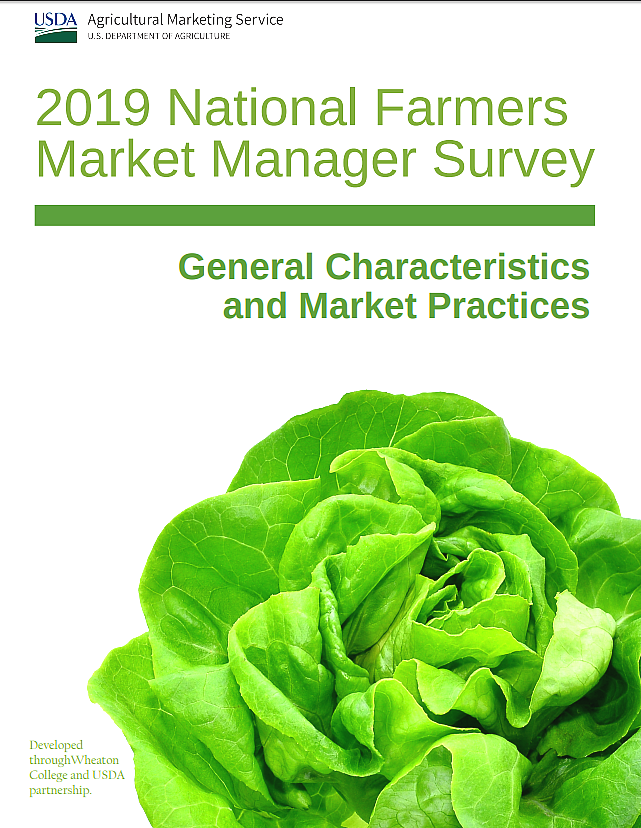By Ed Ragland, Economist, Agricultural Marketing Service, USDA
The 2019 National Farmers Market Survey conducted by the USDA’s Agricultural Marketing Service (AMS) and the National Agricultural Statistical Service (NASS) collected data regarding the market practices of managers in 2019 from 10,000 farmers markets. Using trends and statistics found from these efforts, AMS and Wheaton College created five research briefs highlighting results from this survey and sharing insights into the trajectory for farmers markets into the future.

Here is a snapshot of some top statistics that were identified across all national regions:
- Farmers markets differ substantially across the U.S. by geographic location and proximity to urban centers. Managers revealed considerable diversity in the number of vendors, types of products, and federal nutrition programs available at each location.
- Nearly 22% of vendors sold products that were either new or novel, like tofu and meat and dairy substitutes, nuts, mushrooms, wild foraged foods, prepared foods, seeds, fermented foods, crafts, soaps, pet food, or a service. 77% of farmers markets had at least one product in this category, revealing the prevalence of items beyond typical produce or dairy.
- Farmers market managers are often volunteers (34%), rather than paid employees of the market (29%).
- Half of the respondents, representing over 3,000 farmers markets, reported that their markets accepted at least one Food and Nutrition Service benefit as payment in 2019. A higher percentage of markets in the West (64%) and in urban spaces (54%) accepted these benefits.
- About one-third of farmers markets offered or engaged in at least one food waste and/or conservation program in 2019. The most common programs were donating to food banks, recycling, and composting.
For a full list of the National Farmers Market Managers Survey briefs and more information, visit www.ams.usda.gov/services/local-regional/research-publications/fmms
To access this data and other projects, visit the USDA’s National Agricultural Statistical Service and follow @usda_nass and @usda_ams on Twitter for updates.

